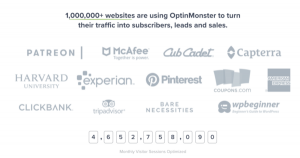— October 26, 2017
Social Media Giants and the Death of Organic Reach

StockSnap / Pixabay
It’s almost 2018, and many social media marketers are still kicking back and discussing the best year ever in social media marketing: 2008.
In 2008, Facebook was a no man’s land. No significant algorithm governed content, and brands were free to spread their message to a potentially large audience.
However, with 2009 there came a death blow to ‘easy’ social media marketing, at least on Facebook. The semblance of the algorithm we see today was introduced, and organic reach was drastically reduced. Since then, in fact, organic reach for business and other ‘pages’ has been decreasing continually year after year.
In my opinion, there’s no real issue here. Let the best marketing messages be the ones that reach user timelines.
But now it’s late 2017, and Facebook is testing out a new split News Feed that would completely eliminate page posts from users’ primary feeds.
In addition to that, we’re seeing Instagram engagement rates shift and change as an algorithm is instituted there.
On Twitter, there’s an algorithm in place as well. The network is forced to fight for survival as it fights for active users and advertisers.
What should social media marketers make of this? Are jobs in jeopardy? Is organic reach on social media a thing of the past (or soon to be)?
On some networks, only time will tell. Like Facebook, the Instagram and Twitter algorithms will be making lots of changes over time as they mature. It’s likely to say that they will make the shift towards what consumers are demanding – less marketing, more of entertaining, informing, and inspiring content.
So here’s a call to all marketers:
Let’s save social media marketing.
The Only Posts With Staying Power Are Those that Users Want

StockSnap / Pixabay
If you want to get into an extremely uncertain line of business, try opening up a brand new social media network.
Everyone in this industry is well aware that user bases are fleeting. For a couple of years, your network might be the talk of the town, but the next day, you could end up squashed by competition.
Think of the quick demise of Myspace or even Vine.
If you’re a social media network that doesn’t want to end up like these two famous case studies, you’re forced to continually adapt in order to provide users with whatever it is they’re demanding. If you don’t provide it, someone else will and users will move on.
Right now, there’s a resounding message that almost every social media network is hearing from consumers:
We hate posts from brands.
In an effort to appease users who have this opinion, algorithms are changing at lightning speed and with each change, it’s becoming more and more difficult for brands to enter the timeline.
Here’s why:
Most brands don’t care what users want. They care about sales goals.
If we, as marketers, simply worked to take on a true inbound marketing methodology, maybe users wouldn’t disapprove of brands so much.
If everyone’s talking about how inbound marketing is all about providing value, why don’t users love brand posts on social media?
Because brands are falling short, and failing to provide real value. Users are seeing through the veil and into a brand’s actual intentions.
True Inbound Marketing: The Answer to Declining Organic Reach
On Facebook, it’s almost too late for any real change. If users respond favorably to more content from family and friends along with less from brands, then it’s likely to assume that Facebook will roll out the “Explore Feed” to compartmentalize business account posts.
However, it can be stopped. Effective, value-driven content can cause users to decide that they want to see posts from brands within their timeline. If users think of certain brands that they would miss seeing, then they’re less likely to show support for the change Facebook is testing.
If marketers genuinely work to understand each network they enter, and if their posts serve up authentic value every time they’re published, then users will appreciate the voice that brands can have on social media.
If this can’t be done, then get ready for more ad spend and fewer results via organic marketing on social in 2018.
Digital & Social Articles on Business 2 Community
(62)
Report Post





